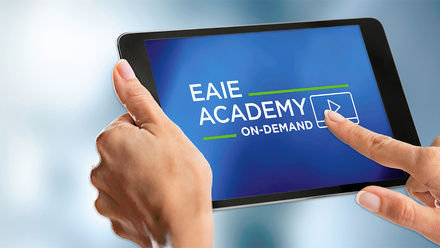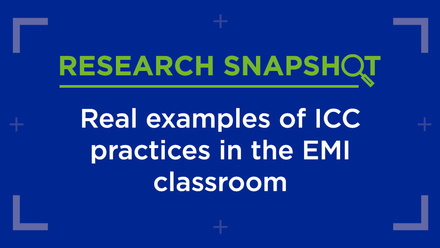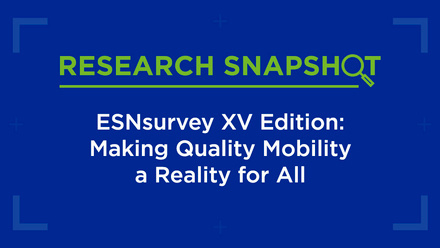Five things to keep in mind when planning an Erasmus+ BIP

Erasmus + Blended Intensive Programmes (BIP) are flexible mobility formats that merge digital and in-person mobility to bring together students and academic staff from different cultural backgrounds, disciplines, and study levels, interested in broadening their understanding of a common theme.
In this blog post, we present our experiences of organising a BIP focused on the ethical reflections on mental health (BIP Mental Health) and share insights for those considering organising a BIP.
Erasmus+ BIP on Ethical Reflections on Mental Health
BIP Mental Health is a collaboration between higher education institutions (HEIs) from Finland (Diaconia University of Applied Sciences DIAK, Helsinki), Germany (Protestant University of Applied Sciences EvH, Bochum), Czechia (Technical University of Liberec), and Norway (VID Specialized University, Stavanger). The programme is mainly aimed at second-year bachelor’s degree students from study programmes such as social work, social education, nursing science, inclusive education, and special pedagogy.
BIP Mental Health was piloted in 2023 in Stavanger and had its second iteration in 2024 in Bochum. We are currently planning the third edition that will take place in Liberec in 2025.
As we devise a strategy for the next year, we look back at our experiences, best practices, and challenges, and share our takeaways.
1. Partner up
Before choosing partner universities, we recommend teaming up with colleagues at the international office of your institution. Not only will they be able to advise you on setting up an international collaboration, but they may also be more familiar with what may seem like overwhelming administrative work.
Organising a BIP requires collaboration between at least three European HEIs, and an Erasmus agreement between institutions is a prerequisite. This means that harnessing an existing institutional network is a solid departing point.
2. Set it up
While the collaboration will likely start digitally, in our experience a physical planning meeting before the programme kicks off is something worth considering. This will allow the team to get to know each other better.
Our BIP team meets before the kick-off to develop a common study plan over the course of a few days. During this week, we also plan the frequency and focus of digital meetings, dates for student recruitment, a local pre-kick-off in each institution, an online phase kick-off, and dates for an intensive study week.
3. Programme up
Once the team is in place, efforts should focus on exploring common interests and competencies with an aim to develop a shared understanding of a theme. While ethical reflections on mental health are an umbrella theme of our BIP, each edition focuses on a specific aspect of this topic. The first BIP focused on values, followed by a 2024 focus on stigma. The theme for 2025, ‘helping the helpers’, emerged as relevant during reflections with students in Bochum.
The successful participants earn 3 ECTS. Special attention should be paid to establishing a good balance between lectures, group work, field trips, and extracurriculars. We have good experiences with organisation of public programme, such as open lectures, and with sharing local nature and culture. During the intensive week students work in groups on an assigned task of the week, results of which they present on the final day.
Be mindful of differences in educational programmes, English language skills (both for students and staff), and culture. While there is always a risk of getting lost in translation, we learned that there is also a risk of being lost in legislation. For example, mental health care is organised differently in Norway and Germany which is reflected in policy, unwritten rules, and study plans.
4. Practicalities
Student recruitment can be challenging for some partner institutions, but not for all. Since knowledge exchange should be in focus and group work prioritised, try to have at least one student from each country in each group to maintain a bit of balance.
Team building is crucial and should be prioritised during the kick-off, in the online phase, and during the intensive week. Think ice breakers! Choice of a learning management system can play a role here: we use Howspace for meetings, communication, and content posting, as we find it more engaging.
In terms of accommodation, our advice is to provide options and support, but remind the students that it is their responsibility to book their trips and lodging. Additionally, we aim to provide free local public transport for everyone.
5. Challenges
BIPs come with challenges, the first of which is reflected in the programme’s name: by intensive, we mean very intensive. With tight schedules, field trips, and dinners, the intensive week programme can be very tiring. This counts double for the hosts, who also need to stay on top of logistics.
The administrative work can also be very demanding during all stages of the programme, and not all lecturers have enough time on their busy schedules. Due to this, it is important to share responsibilities. Synchronising everyone's calendars will be challenging, so it's essential to use checklists and stick to the plan.
Challenges can occur in unexpected places and can sometimes stay under the lecturers’ radar. This is why we recommend taking feedback seriously, adjusting accordingly on the go, and prioritising evaluation towards the end of each iteration.
students become more independent, willing to engage in a discussion, understand different perspectives and think outside the box through this kind of exchange.
BIP: A blend of intensity and gratitude
With two BIPs behind us and two ahead of us, we are confident about the many benefits of international mobility. A BIP both requires and endows added values and allows for personal and professional growth for everyone involved. We learned that students become more independent, willing to engage in a discussion, understand different perspectives and think outside the box through this kind of exchange. Lecturers also benefit from pedagogical enrichment, expanded networks, and collaborative work beyond professional and national boundaries.
One of the student groups named themselves Brückenbauers [bridge builders], a name indicative of the kind of experience BIP brings. As such, this experience is both intellectually and physically demanding but equally rewarding for everyone involved.
Less is more! Keep it simple!
BIP up!






